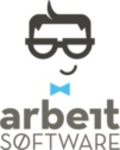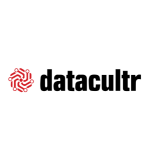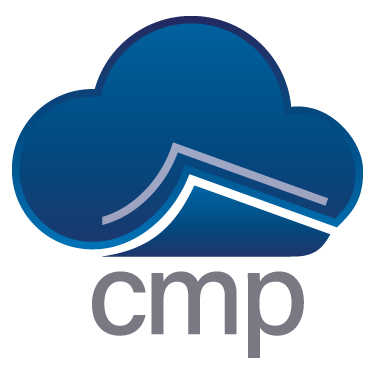Yes, the majority of debt collection software provides the ease of cross-platform and cross-device accessibility. This implies that users can access the software from a variety of operating systems, including Windows, Mac, iOS, and Android, as well as from their desktop, laptop, tablet, or smartphone. This adaptability enables more effective and efficient debt collection capabilities, independent of the user's location or device.
List of 20 Best Debt Collection Software
Yardi is a software platform that serves the needs of both small and large companies across various industries, including public spaces, military housing, and corporate offices. With its emphasis on quality, innovation, and competitive pricing, Yardi...Read More Yardi
TrueAccord - a debt collection software that harnesses the power of machine learning to deliver seamless communication with consumers. Our digital platform offers a convenient self-service experience, streamlining the recovery process and promoting p...Read More TrueAccord
CollectMax is a software crafted with law firms and agencies in mind to make debt collection procedures easier. Its user-friendly interface and compliance features ensure optimal efficiency and client happiness. This advanced solution simplifies the...Read More CollectMax
Arbeit Dialer - the leading auto-dialing software that is both efficient and TCPA-compliant. Increase agent productivity with the ability to make 250+ outbound calls per hour. This versatile tool seamlessly integrates with your existing systems, simp...Read More Arbeit Dialer
FICO Debt Manager 9 solution for streamlining debt collection and recovery. This powerful system utilizes cutting-edge analytics, automated workflows, and smooth data integration to help businesses effectively manage debt while staying compliant and...Read More FICO Debt Manager 9
Virtual Collector is a debt collection software designed for simple and effective management. Revolutionize your collections process with automated reminders, strong contact organization, and compliance monitoring. With the added bonus of a mobile ap...Read More Virtual Collector
COLSYS, the one-of-a-kind software that is transforming the industry with its cutting-edge technology, unmatched precision, and unparalleled efficiency. Our revolutionary techniques are redefining traditional methods, raising the bar and driving rema...Read More COLSYS
TSI Payments is a software that transforms business operations. Its cutting-edge capabilities streamline payment processes and reduce the need for manual tasks, allowing companies to focus on key initiatives and increase efficiency. This results in a...Read More TSI Payments
Emagia Order To Cash Automation solution for streamlining your finance operations. Powered by AI, this innovative software enhances efficiency, simplifies receivables, and optimizes cash flow management. With seamless integration and reduced manual t...Read More Emagia Order To Cash Automation
Debtflow is a debt collection software that boosts efficiency in managing accounts. Its user-friendly interface and automatic functions allow businesses to easily perform routine tasks and generate in-depth reports. This intuitive software offers cus...Read More Debtflow
BillSource is a billing and collections software that transforms the way businesses manage their cash flow and individuals maintain their creditworthiness. Enjoy the benefits of our cloud-based platform with a free trial and bonus points upon sign-up...Read More BillSource
Swordfish is a electronic document management solution brought to you by Capita. Simplify the process of managing information and data with this state-of-the-art tool that ensures compliance with regulations. With Swordfish, you can easily access imp...Read More Swordfish
Meet DebtCloud is a debt collection and evaluation solution created by Codewell Software. With 24/7 access from any internet-connected device, this cloud-based software offers a secure and user-friendly interface for seamless use. Leave behind outdat...Read More DebtCloud
A flagship software, VQN (Visual Queue Network), designed for financial institutions and collection agencies. This cutting-edge debt collection platform offers a user-friendly interface and unique features to optimize the debt recovery process and bo...Read More Visual Queue Network (VQN)
WRKTOP solution for streamlining and empowering your desk-less workforce. Our all-in-one mobile app allows your team to effortlessly Collaborate, Transact, and Learn, boosting productivity and efficiency. With quick implementation, smooth adoption, a...Read More WRKTOP
Datacultr - the ideal solution for financial institutions to support individuals with no credit history by offering loan opportunities for buying a smartphone. Along with meeting their essential device requirements, Datacultr also helps in establishi...Read More Datacultr
Case Master Pro is a cloud-based legal case management software designed specifically for law firms and collection agencies. With strong security protocols and customizable modules, it maximizes efficiency and financial management, ultimately enhanci...Read More Case Master Pro
iController is financial management software that streamlines all aspects of the process. Its user-friendly interface and cutting-edge capabilities enable businesses to easily manage real-time insights, automate invoicing, and seamlessly integrate wi...Read More iController
CMS Credit Suite is a credit management solution designed to streamline the entire credit process. Its cloud-based platform offers instant credit decisions, thorough financial analysis, and seamless integration with external data sources. This powerf...Read More CMS Credit Suite
AppFolio is a property management software created specifically for real estate experts, builders, developers, and contractors. It boasts cutting-edge automation and easy mobile accessibility to foster business growth. With its all-in-one accounting...Read More AppFolio
Learn More About Debt Collection Software
- What Is Debt Collection Software?
- What Are The Recent Trends In Debt Collection Software?
- Benefits Of Using Debt Collection Software
- Important Factors To Consider While Purchasing Debt Collection Software?
- What Are The Key Features To Look For In Debt Collection Software?
- Why Do Businesses Need Debt Collection Software?
- How Much Time Is Required To Implement Debt Collection Software?
- What Is The Level Of Customization Available In Debt Collection Software?
- Which Industries Can Benefit The Most From Debt Collection Software?
- Conclusion
What Is Debt Collection Software?
A specialist application called debt collection software was created to assist companies and organizations in effectively managing and collecting past-due amounts from clients or customers. It simplifies every step of the debt collection process, including recording and reporting payments as well as communication and follow-up. Debt collection software may significantly cut down on the time and effort needed to collect debts because to its sophisticated features and automated capabilities, which will eventually boost your revenue and improve your cash flow.
The capacity of debt collection software to centralize and arrange all debt-related data, such as client information, payment records, and correspondence logs, is one of its primary characteristics. This facilitates debt collectors' access to and analysis of pertinent data, enabling them to approach debt recovery strategically. Furthermore, some software provides tools for risk assessment and credit scoring to determine the possibility of effective debt recovery.
The automation features of debt collecting software are yet another important benefit. This gives your staff more time to work on other important projects by doing away with the need for manual duties like updating client records and issuing payment reminders. Additionally, a lot of software programs have automated workflows that may be customized to fit your unique debt collecting tactics, guaranteeing speed and consistency in your strategy.
Debt collection software offers multiple channels for communication with debtors, including text messaging, email, and phone calls. The likelihood of a successful debt recovery is increased by these options, which let you select the most practical and efficient approach for your clients. To keep a thorough record of every conversation for legal reasons, some software even has call recording and transcription capabilities.
Furthermore, the majority of debt collection software has strong reporting features that give you up-to-date information on how well you're collecting debt, enabling you to monitor your progress, spot bottlenecks, and make informed decisions. This helps you measure the overall success of your debt collection efforts in addition to streamlining your processes.
All things considered, companies and organizations trying to enhance their debt recovery procedure would be wise to invest in debt collection software. It may assist you in streamlining and optimizing your debt collection efforts with its advanced features and automation technologies, resulting in quicker and more effective debt recovery. Think about your unique business demands as you investigate and contrast several software solutions, then select the one that best suits your needs and price range.
What Are The Recent Trends In Debt Collection Software?
As technology has advanced and the debt collection industry has changed constantly, debt collection software has seen tremendous improvements in recent years. To make an informed choice when buying a debt collection software solution for your company, it's critical for buyers to stay current on the most recent developments in the industry. The following are some of the most significant developments in debt collecting software in recent years:
1. Automation: Manual procedures have grown laborious and prone to mistakes as the number of debt collecting cases has increased. Consequently, improved automation capabilities including automated payment reminders, follow-up action scheduling, and client communication are now available in debt collection software. In addition to saving time, this lowers human error, increasing efficacy and efficiency.
2. Artificial Intelligence: In the debt collecting sector, AI is revolutionizing the game. It enables software to forecast results and make data-driven decisions by analyzing data and patterns of consumer behavior. This makes it possible for debt collectors to create more individualized and successful debt recovery plans.
3. Mobile-Friendly Solutions: Due to the widespread use of smartphones, companies that supply debt collection software have started to develop mobile-friendly options, which enable debt collectors to access and handle assignments while on the go. Field agents would particularly benefit from this since they can access customer data, record payments, and instantly update case statuses using the software on their mobile devices.
4. Cloud-Based Solutions: Due to its many advantages, such as cost savings, remote data storage, and convenience of use, cloud-based debt collection software has grown in popularity. Cloud solutions are very flexible and easy since they allow debt collectors to access the program from any device with an internet connection.
5. Compliance Features: Strict compliance rules and extensive regulation apply to the debt collecting sector. In order to guarantee compliance with rules, debt collection software providers have responded by adding compliance features like data encryption, automated security alerts, and call recording to their products.
6. Integration Capabilities: Debt collection software now has integration capabilities with other important corporate systems, such accounting software and CRM tools, to optimize procedures and boost overall productivity. Better customer information management is made possible by doing away with the necessity for manual data entry.
Benefits Of Using Debt Collection Software
Businesses and organizations of all sizes can efficiently manage and streamline their debt collection procedures with the help of debt collection software. It offers several advantages that can significantly raise the effectiveness and success of debt collection initiatives. Some of the main advantages of employing debt collection software are as follows:
1. Automates And Streamlines The Debt Collection Process: Debt collection software streamlines the manual debt collection process by automating numerous operations, including following up with debtors, maintaining payment history, and reminding and notifying them. This makes the entire process more productive and efficient by saving time and lowering human error.
2. Boosts Collection Rates: Debt collection software can greatly increase the likelihood of successfully collecting past-due payments with sophisticated features like automated payment reminders and negotiation options. Businesses benefit from higher collection rates and more income as a result.
3. Enhances Communication With Debtors: Effective debt collection depends on effective communication. Debt collection software makes it simpler to contact debtors and manage all correspondence in one location by offering a variety of communication methods, including text, phone, and email.
4. Scalable And Customizable: Debt collecting software can be modified to meet the unique requirements of various companies and sectors. Additionally, it is very scalable, so it can manage increasing debt loads without requiring extra work or money.
5. Improves Data Management: Effective debt collection depends on maintaining current and accurate records of debtors and their payment histories. Debt collection software makes it simple to organize and retrieve data by providing a central database for all debtor information.
6. Lowers Expenses: Manual debt collection procedures can be expensive and time-consuming. Debt collection software lowers personnel costs and boosts return on investment by streamlining processes and increasing productivity.
7. Assures Compliance: State and federal debt collection laws are taken into consideration while designing debt collection software. This aids companies in avoiding legal issues and preserving their positive industry reputation.
Important Factors To Consider While Purchasing Debt Collection Software?
The success of your debt management and collection efforts can be greatly impacted by the software you use. When exploring the world of debt collection software, it's critical to take into account a few crucial elements to make sure you get the finest solution for your unique requirements. When buying debt collection software, keep the following points in mind:
1. Features And Functionality: Identifying the features and functionality you require in a debt collecting software program is fundamental. Automated collection procedures, adaptable workflows, analytics and reporting, the ability to process payments, and interaction with accounting and CRM systems are a few crucial characteristics to search for. List your company's needs and contrast them with the characteristics that other software packages provide.
2. Customization Options: Since every company has a different debt collection procedure, it's critical to select software that can be modified to meet your particular requirements. Seek out software that has customization features including the capacity to generate custom reports, automate processes, and add custom fields. This can help you increase the efficiency and streamline your collection procedure.
3. User-Friendly Interface: One important consideration is how easy it is to utilize the software. A complex interface that takes hours to use and navigate is the last thing you want. To make it simple for your staff to understand and use, look for software with an intuitive and user-friendly interface.
4. Security And Compliance: Choosing software that puts security and compliance first is essential because handling sensitive financial data carries a lot of responsibility. Look for software that complies with laws like the Fair Debt Collection Practices Act (FDCPA) and has safeguards against cyberattacks and data breaches.
5. Customer Support: You will occasionally need assistance or have questions, regardless of how user-friendly a piece of software is. This is where customer service is useful. Choose software that provides dependable and easily reachable customer service via live chat, email, or phone. This will guarantee that you receive the help you require when you need it.
6. Scalability: Your debt collection requirements will change as your company expands. Selecting software that can grow with your company is essential. Choose software that allows you to add users and features as business needs evolve, and that gives a variety of price options.
7. Cost: Finally, take into account the software's cost. Finding software that falls within your budget is crucial, even though you don't want to sacrifice any important features or functionality. Seek out software that provides a free trial and clear pricing so you may try it out before buying.
What Are The Key Features To Look For In Debt Collection Software?
To guarantee efficacy and efficiency in managing your debt collection process, there are a few essential characteristics to consider while looking for the best debt collection software. Among these characteristics are:
Automation and Organizational Tools: To expedite the procedure and minimize manual labor, debt collecting software should incorporate automation features. Keep an eye out for features like scheduled payments, automated reminders, and account status updates. Furthermore, efficiency can be increased by using organizational tools like document storage, client management, and contact databases.
2. Customization Choices: Every debt collecting company has different procedures and needs. To customize the system to meet your unique needs, look for software that provides customization choices. This will assist you in developing a more effective and customized workflow for better outcomes.
3. Real-Time Reporting And Analytics: Constant data tracking and analysis are necessary for efficient debt collection. To track your progress, spot obstacles, and make the required corrections to improve your success rate, look for software that offers real-time reporting and analytics.
4. Compliance Management: Since the debt collecting sector is heavily regulated, having software that can assist you in adhering to legal requirements is essential. To be sure your company is following the law, look for features like automated compliance checks and secure client data storage.
5. Integration With Other Systems: You might need to integrate the software with other systems, such accounting or CRM software, in order to maximize your debt collection process. Seek software that provides APIs or connectors to assist keep all of your systems consistent and expedite the process.
6. User-Friendly Interface: You can save time and effort by using software with an intuitive interface. Look for debt collection software that is simple to use, especially for non-technical people, with an easy-to-understand UI.
7. Data Security: Selecting a system with high-level data security is essential since debt collecting software handles sensitive customer information. To protect your data and your clients, look for features like encryption, secure servers, and frequent backups.
8. Mobile Accessibility: Being able to use your debt collection software while on the road can be extremely beneficial in the fast-paced world of today. To manage your collections at any time and from any location, look for software that is mobile accessible.
Why Do Businesses Need Debt Collection Software?
Companies use debt collection software for a number of reasons, such as increasing the likelihood of effectively recovering overdue debts, enhancing efficiency, and simplifying the debt collection process. One of the most important parts of managing a business is collecting debt, which can be a laborious and time-consuming process if you don't have the proper equipment. Simplifying the debt collection process is one of the primary reasons companies want debt collection software.
Businesses can reduce labor costs and increase efficiency by using this software to automate the collection process. Businesses can save time and money by using debt collection software to set up automated reminders and follow-ups in place of manually tracking and following up on debts. By enabling companies to monitor and handle all outstanding debts in a single, centralized system, debt collection software also contributes to increased productivity.
This reduces the possibility of mistakes and late payments and does away with the necessity for human record-keeping. Businesses can keep an eye on their collections and respond quickly when needed with real-time updates and alerts. Increasing the likelihood of effectively collecting past-due bills is another important advantage of debt collection software.
The program makes it simpler for debtors to make payments by providing features like online payment alternatives and automatic payment plans. Furthermore, credit checks can be conducted using debt collection software, enabling companies to evaluate a debtor's creditworthiness prior to granting credit.
How Much Time Is Required To Implement Debt Collection Software?
The size of your company, the intricacy of your debt collection procedures, and the software you select can all affect how long it takes to adopt debt collection software. The implementation procedure usually takes a few weeks to a few months to complete. This covers your team's training sessions, data migration, and initial setup.
Asking about the vendor's implementation procedure and schedule is essential before investing in debt collecting software. A trustworthy vendor should be able to give you a precise and reasonable implementation schedule that takes into account your unique business requirements. Making ensuring that your staff has received sufficient training on how to operate the program efficiently is also crucial.
This could entail participating in vendor-provided webinars, workshops, or training sessions. It's important to note that the implementation procedure shouldn't interfere with your ongoing debt collecting activities. A reputable software supplier will collaborate with you to guarantee a seamless transfer and reduce any possible interruptions.
After the deployment process is complete, your team should be ready to utilize the software to its maximum capacity and observe an increase in the efficacy and efficiency of your debt collection procedures.
What Is The Level Of Customization Available In Debt Collection Software?
The degree of customization that debt collection software provides is one of the most important factors to take into account. The capacity to modify and customize software to meet the unique demands and specifications of a user or organization is known as customization. This increases general productivity and efficiency in addition to simplifying debt collection procedures.
Depending on the provider and the particular software being used, different debt collection software may offer varying degrees of flexibility. But generally speaking, the majority of debt collection software allows for a significant amount of flexibility to meet the various needs of users. First of all, users can typically alter the software to fit their corporate identity and branding.
This implies that the software can be made more individualized by adding the company's colors, logo, and other visual components. In addition to preserving brand consistency, this gives the business a more polished and reliable image. The software's workflow and procedures can then be altered by users.
This involves setting up reminder schedules and notifications, adding or removing phases from the collecting process, and creating custom fields. These modifications can aid in work automation and the development of a more effective debt collecting procedure. Additionally, a lot of debt collection software lets you customize dashboards and reports.
This implies that users can select the data they wish to monitor and view, and the program will use that data to create dashboards and reports. This can help uncover areas for improvement and provide insights into the gathering process. Furthermore, many debt collection software provides communication channel customization choices.
This implies that, based on their choices, users can contact debtors using a range of communication channels, including phone calls, text messages, and emails. In general, debt collection software offers a high degree of customization, allowing users to tailor the program to meet their particular needs. Selecting the customization option that best fits your company's needs requires carefully weighing the possibilities provided by various software suppliers.
Which Industries Can Benefit The Most From Debt Collection Software?
Businesses in a variety of industries who need to manage outstanding debts and expedite their collection process might benefit greatly from debt collection software. Certain businesses might greatly profit from the usage of debt collection software, even if the advantages may differ based on the particular requirements of each company. Let's examine some of the sectors that stand to benefit the most from debt collection software in more detail.
1. Services For Finance: Every day, a significant number of debts are handled by the financial services sector, which includes banks, credit unions, and lending organizations. It can be difficult to maintain track of all the outstanding debts and guarantee prompt collection due to the continuously shifting legislation and compliance requirements. Financial service providers may automate their debt collection process, keep correct records, and guarantee regulatory compliance with the aid of debt collection software. This raises the likelihood of a successful debt recovery in addition to increasing operational efficiency.
2. Medical Care: Managing unpaid medical bills and past-due payments from patients is a common problem for hospitals, clinics, and other healthcare organizations. Healthcare providers can use debt collection software to give various payment alternatives, automate patient reminders, and track and follow up on unpaid debts. In the end, this may result in higher revenue collections for healthcare institutions, freeing them up to concentrate on giving their patients high-quality care.
3. Small Enterprises: Small businesses may lack the manpower and resources necessary to handle their accounts receivable. For small businesses looking to automate their debt collection process and save time and money, debt collection software can be an affordable option. Features like automated communication and adjustable payment plans help small businesses increase cash flow, lower the risk of bad debt, and keep good client relations.
4. Shop: The retail sector is largely dependent on consumer credit and payments made using store credit cards or installment plans. However, a retailer's cash flow may be significantly impacted by lost or late payments. Retailers may manage their customer accounts, send timely reminders, and create reports to monitor payment trends and spot possible delinquencies with the aid of debt collection software. As a result, businesses are able to increase their overall financial performance, decrease the number of delinquent accounts, and collect payments more effectively.
5. Services: Maintaining a steady cash flow for utility companies—such as those that provide gas, electricity, or water—requires controlling past-due payments and lowering bad debt. Utility firms can manage payment history, send consumers timely reminders, and streamline their collection process with the use of debt collection software. Utility businesses can improve their collection operations and reduce the risk of non-payment by using features like automated payment processing and flexible payment alternatives.
Conclusion
In summary, the efficiency and efficacy of your company's debt collection efforts can be significantly enhanced by investing in debt collection software. When selecting software, it's critical to first evaluate your company's unique goals and requirements before taking the program's features and functionalities into account. Seek out interfaces that are easy to use, workflows that can be customized, and the ability to integrate with your current systems.
Additionally, be sure to thoroughly investigate the software provider's reputation and integrity. Examine other users' reviews and testimonials and take into account their experiences. In order to further assess the software's usability and suitability for your business, it is also beneficial to request a demo or trial version. Although there may be an initial expense associated with purchasing debt collection software, the long-term advantages and return on investment will exceed this cost.
You may handle your debts more efficiently, enhance your collection procedure, and eventually boost your bottom line with the correct software. We hope that this buyer's guide has given you important information and things to think about when making your choice.
Debt Collection Software FAQ's
Can Debt Collection Software Be Accessed Across Multiple Devices And Platforms?
Is Debt Collection Software Future-Proof And Adaptable To Emerging Technologies Like Ai, Blockchain or Iot?
The ability to be future-proof is a crucial component of the rapid evolution of debt collecting software in recent years. As blockchain, AI, and IoT technologies proliferate, debt collection software keeps up with the times and incorporates these developments into its features.
These technologies have significantly improved the accuracy and efficiency of debt collection procedures, allowing software to adjust to the ever-changing demands of the sector. Therefore, debt collection software continues to be a dependable and pertinent option for efficiently managing debts.
Is There A Free Trial Offered To Assess Debt Collection Software Before Committing?
Indeed, a lot of debt collection software providers give prospective clients a free trial. This enables you to evaluate the features and capabilities of the software prior to committing. You can evaluate the software's ability to automate processes, investigate its interface, and decide whether it suits your needs during the trial period. This can guarantee that the software is a suitable fit for your company and assist you in making an informed choice.
Does Debt Collection Software Offer Data Security Features And Meet Regulatory Compliance Standards?
In order to protect sensitive data, the majority of debt collection software does, in fact, provide data security features. Additionally, they follow legal requirements such the Gramm-Leach-Bliley Act (GLBA) and the Fair Debt Collection Practices Act (FDCPA).
These precautions include password protection, data encryption, and frequent security assessments. This guarantees that your information is safe and complies with industry standards.
Can Debt Collection Software Integrate Seamlessly with Existing Tools And Platforms?
Indeed, the majority of debt collection software is made to work in unison with already-existing platforms and tools, including payment gateways, CRM systems, and accounting software. These interfaces guarantee accuracy and consistency in data handling while also saving time and effort.
To guarantee a seamless integration procedure, it's crucial to verify a debt collection software's compatibility with your current tools and platforms before selecting one.














-logo.jpg)







